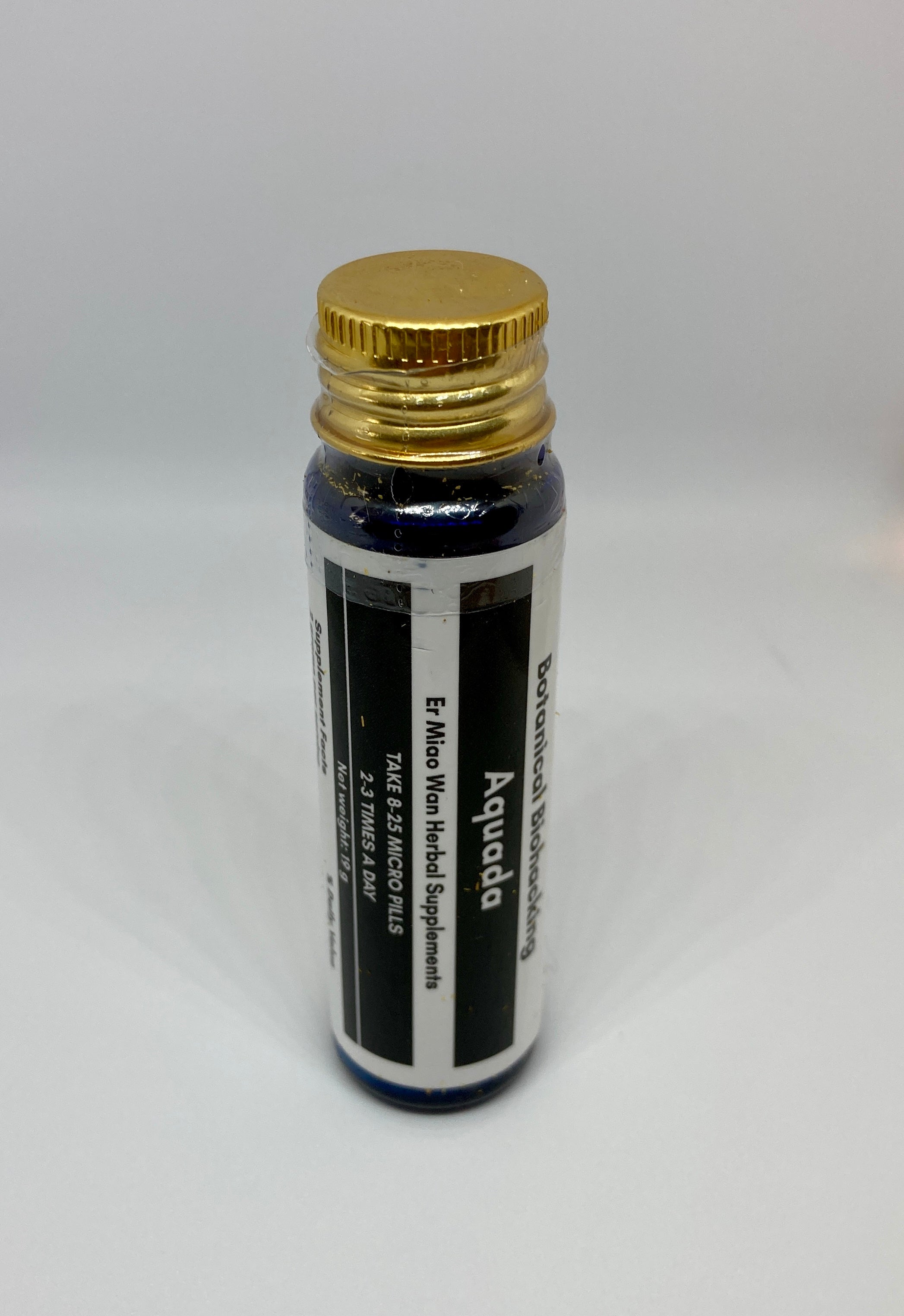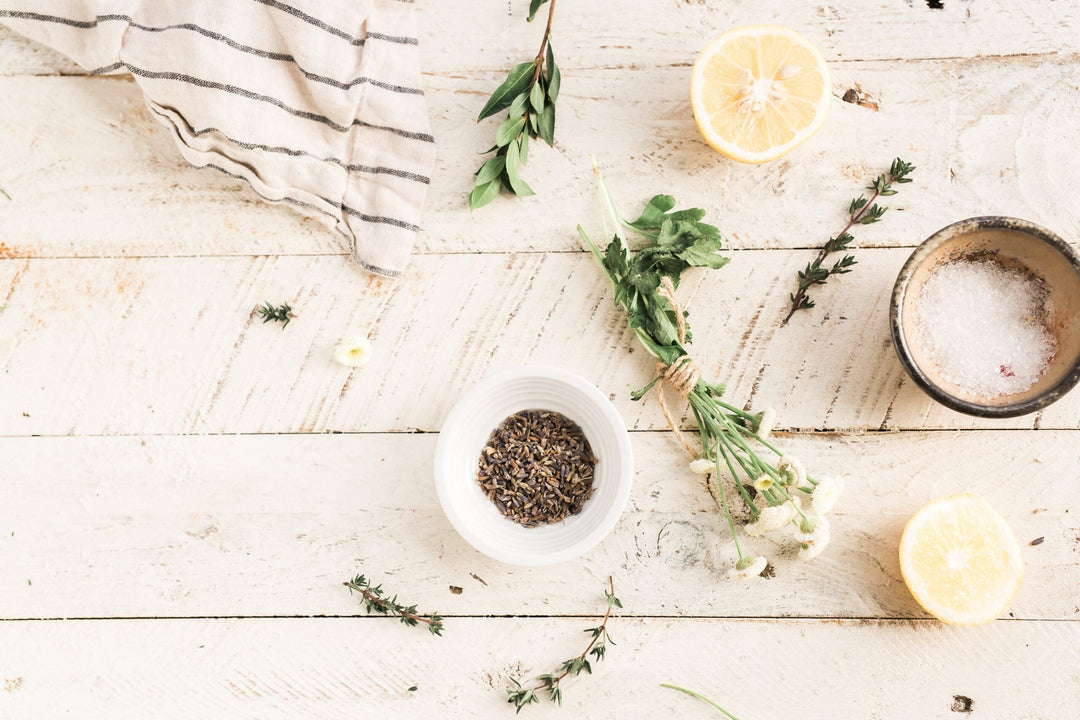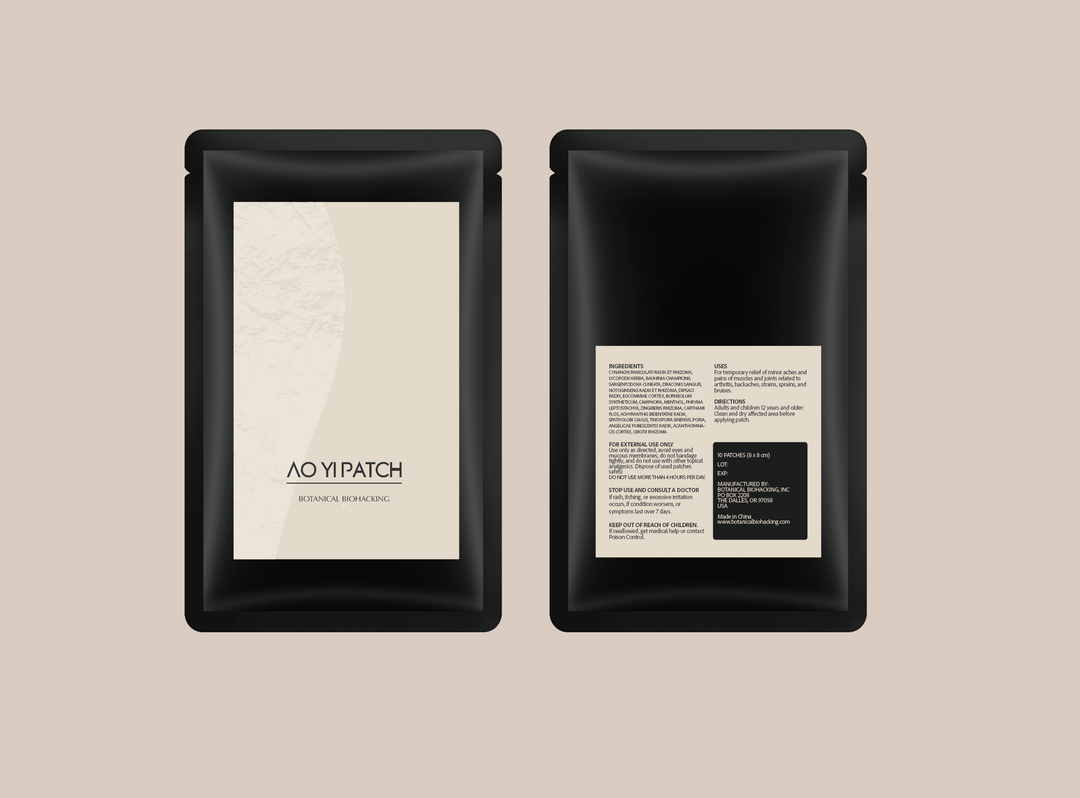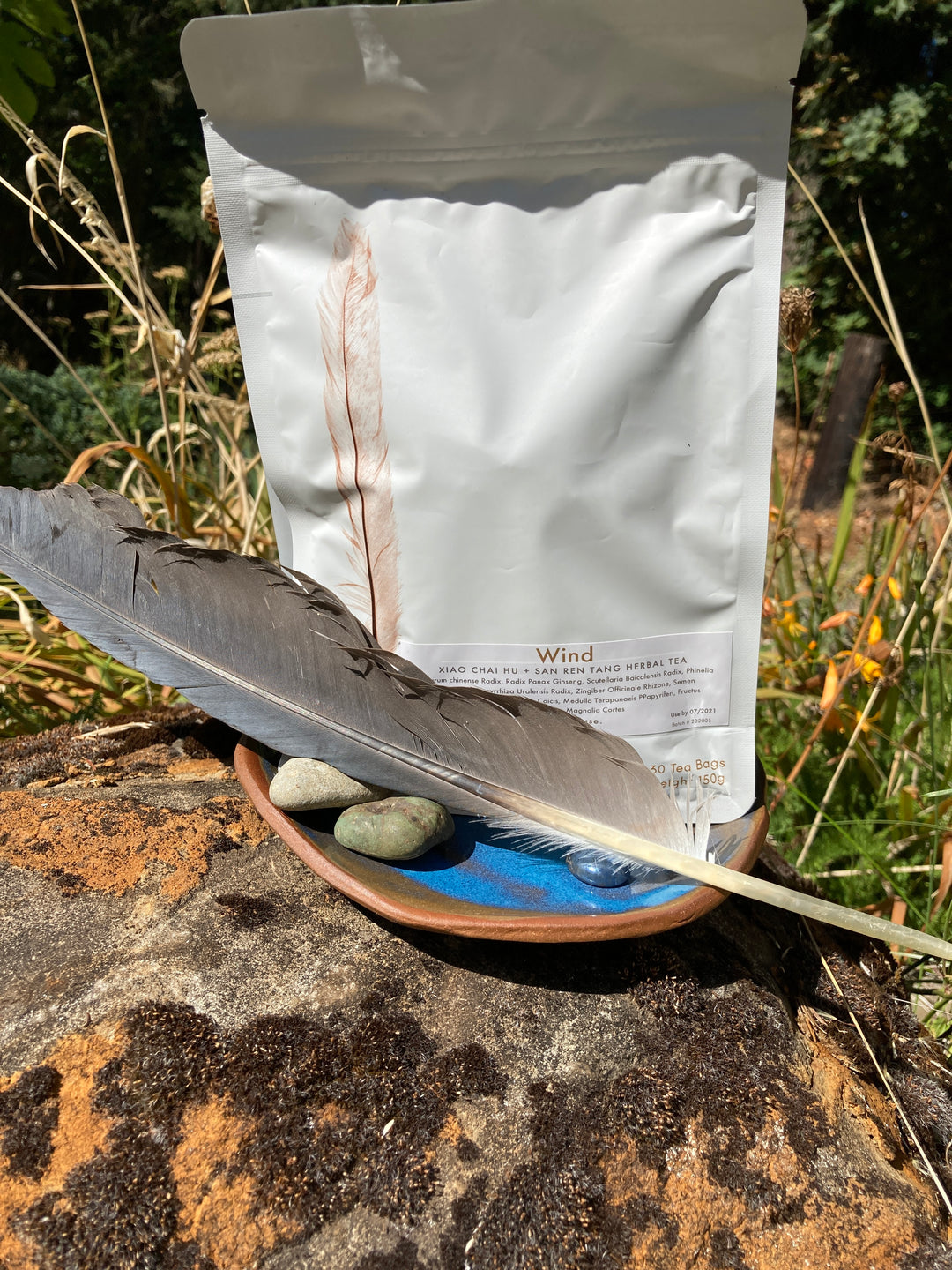Access Denied
IMPORTANT! If you’re a store owner, please make sure you have Customer accounts enabled in your Store Admin, as you have customer based locks set up with EasyLockdown app. Enable Customer Accounts
Three Secrets of Digestive Health
Sep 15, 2023
Chronic gut problems, ranging from irritable bowel syndrome to chronic gastritis, have long been a bane for many. As the search for effective treatments continues, many are returning to nature, particularly botanical medicines. But how do these plant-based remedies stand up to scientific scrutiny, and what insights can traditional Chinese medicine (TCM) provide?
https://www.youtube.com/watch?v=LaZaWpgIA68
First and foremost, any effective botanical treatment for gut problems must regulate bile flow. Bile, a digestive fluid produced by the liver and stored in the gallbladder, plays an essential role in fat digestion and absorption. Its significance goes beyond mere digestion; bile harmonizes gut microbial populations, acting as a sort of "master gardener" for the intestines.
A crucial function of botanicals in the treatment of gut problems is the regulation of bile flow. As our body's natural digestive aid, bile emulsifies dietary fats into minuscule globules, preparing them for efficient breakdown and absorption by our intestines. Moreover, recent revelations by EPFL scientists have demonstrated the ability of bile acids to transform fat-storing cells into fat-burning ones. This transformative process, pivoting from FAT STORING to FAT BURNING, emphasizes the indispensable role of bile not just in digestion but also in our body's metabolic equilibrium.
Yet, bile's function isn't merely confined to fat management. It plays a pivotal role in expelling waste products, such as the protein hemoglobin from destroyed red blood cells and excess cholesterol. Thus, the efficient flow and function of bile are paramount to the health of our gut and overall metabolism.
Mu Xiang, or Aucklandiae Lappae, isn't just another herb; it's a botanical wonder in the world of TCM. Mu Xiang for its therapeutic properties, influences bile secretion, ensuring the digestive and waste management processes operate at their peak.
Think of the bile as an ecologist for your gut. An analogy might help here: Picture a peculiar bird from Huntington Beach, who, in his adventurous spirit, swims right into an oil spill. His fellow avians may mock his misfortune, but along comes a kind-hearted ecologist. This savior cleanses the bird with gentle care, much like how Aucklandiae ensures our bile efficiently washes away waste from our system. And as that bird, affectionately named Randal, bonds with his rescuer over bird documentaries, our gut forms an intrinsic bond with botanicals like Aucklandiae.
Malondialdehyde (MDA), a cellular fatty acid peroxidation byproduct, reminds us of the complex interactions within our cells. Understanding such interactions is crucial as we explore the symbiotic relationship between botanical medicines and our body. Elevated levels of MDA are often associated with oxidative stress, and while research continues into its full implications, the role of bile and botanicals like Aucklandiae in promoting cellular health is undeniable.
An effective remedy should not be a one-size-fits-all solution in the ever-changing landscape of our body's needs. Instead, it should adapt, much like our body does daily. The medical term for this is biphasic regulation. For instance, the remedy should promote movement when the bowels feel sluggish. Conversely, it should offer a calming effect on days marked by urgency.
Traditional Chinese medicine often focuses on restoring balance. Yin and Yang, the fundamental opposites in TCM, must remain in equilibrium for health to prevail. Botanical medicines that adhere to this principle of biphasic regulation, such as tractal loads, aim to restore this delicate balance, bridging ancient wisdom and contemporary medical understanding.
The human body, in its infinite complexity, changes day by day. Some days, our digestion might be slow, making us feel bloated and uncomfortable, while on other days, we might experience the opposite. A remedy must be as adaptable as our body to recognize and address its shifting needs effectively. This is where the concept of **biphasic regulation** comes into play.
True to its name, biphasic regulation involves two phases – stimulating or calming based on the body's requirements. For example, when the gut feels inactive, the remedy nudges it into action. On more active days, the remedy soothes and calms. This isn't just a modern understanding; it’s an ancient principle with its roots in TCM, emphasizing the balance between Yin and Yang. Medicines like **tractal loads** embody this concept, providing a middle ground between ancient practices and modern needs.
Within the TCM pharmacopeia, Atractylodes lancea (Cang Zhu) holds a special place, particularly when addressing gut problems. Unlike some pharmaceutical interventions, such as Alosetron (Lotronex), which primarily slows down bowel movement and has many side effects, Atractylodes lancea doesn't tamper with natural gastric emptying.
Instead, its magic lies in its ability to regulate. By influencing the CRF and vagal pathways, this botanical marvel takes on the role of a controller, governing the balance of gastrointestinal hormones.
While pharmaceuticals like Alosetron might provide temporary relief, their unidirectional approach often lacks the holistic understanding that herbs bring to the table. A combination of both, however, can be powerful.
Herbal formulas containing Atracylodes work on a deeper regulatory level, addressing the root of the problem. With time, as the body finds its balance, individuals often gravitate more towards these herbal solutions and complement them with lifestyle changes for long-term gut health.
Botanicals are as effective as their source. The finest Atractylodes, for instance, hail from the vast, windswept steppes of Mongolia. Here, the dynamic Eurasian winds carry a rich diversity of microbiota. This exposure compels the Atractylodes plants to adapt, resulting in volatile oil pockets teeming with bioactivity. Notably, Chorus ensures that their Atractylodes, is sustainably wildcrafted, ensuring potency without compromising the environment.
The gut is sensitive, reacting to what we eat and our emotions, stress levels, and overall health. Therefore, an effective approach to gut health must be gentle, forgiving, and adaptive. In the realm of botanical medicine, plants like Kudzu exemplify this philosophy. Renowned in TCM for its healing properties, Kudzu embodies a remedy that offers grace, accommodating the occasional dietary indiscretions and life's inevitable ups and downs.
Known scientifically as *Pueraria lobata*, Ge Gen has been used for centuries in TCM. This plant has found its way into many traditional preparations, heralded for its therapeutic properties. Recent scientific research has added weight to these age-old claims, particularly in addressing the issue of intestinal permeability.
Intestinal permeability, commonly known as "leaky gut", is a condition where the barrier function of the intestinal wall becomes compromised, allowing toxins, bacteria, and food particles to seep into the bloodstream. This can lead to a host of health issues, including chronic inflammation. Ge Gen is found to fortify this barrier, reducing the permeability and enhancing gut health.
While TCM has long lauded Ge Gen's benefits, modern science is catching up, especially regarding hangover prevention. Alcohol consumption can lead to liver damage, but Ge Gen comes to the rescue by repairing alcohol-induced liver injury. It's not just the liver it protects; the overall formula, with Ge Gen at its heart, can be a savior after a night of overindulgence, mitigating the effects of a hangover.
In the nexus of time-tested tradition and groundbreaking science, Chorus emerges as the beacon for holistic gut health. Harnessing the profound insights of Traditional Chinese Medicine, bolstered by rigorous scientific validation, Chorus champions a new era of wellness where adaptability, balance, and gentle care take center stage. As we journey into the future, let us not forget the whispers of the past. With Chorus, we celebrate the perfect harmony of age-old wisdom and contemporary understanding, providing a resonant answer to modern health challenges. Choose Chorus, where tradition meets today for a healthier tomorrow.

Visit Herbal


[YouTube]
[Facebook]
[TikTok]
[LinkedIn]
Brehan Crawford, based in McMinnville, Oregon, is a distinguished clinician specializing in the treatment of chronic conditions, particularly Lyme Disease and its coinfections. After earning his Master’s degree in Acupuncture and Oriental Medicine from the Oregon College of Oriental Medicine in 2009, he deepened his expertise with a 5-year residency under the mentorship of the renowned Dr. Heiner Fruehauf at the Hai Shan Clinic. A Diplomate of Oriental Medicine from the NCCAOM, Brehan has pioneered innovative methods using Traditional Chinese Medicine for chronic infections. Known for mentoring other professionals, he regularly imparts knowledge on advanced Chinese herbal medicine applications. Beyond his clinical pursuits, Brehan enjoys singing, cooking, and hiking.
https://www.youtube.com/watch?v=LaZaWpgIA68
1) The Bile Connection: Nature's Digestive Conductor
First and foremost, any effective botanical treatment for gut problems must regulate bile flow. Bile, a digestive fluid produced by the liver and stored in the gallbladder, plays an essential role in fat digestion and absorption. Its significance goes beyond mere digestion; bile harmonizes gut microbial populations, acting as a sort of "master gardener" for the intestines.
The Botanical Symphony of Bile Regulation
A crucial function of botanicals in the treatment of gut problems is the regulation of bile flow. As our body's natural digestive aid, bile emulsifies dietary fats into minuscule globules, preparing them for efficient breakdown and absorption by our intestines. Moreover, recent revelations by EPFL scientists have demonstrated the ability of bile acids to transform fat-storing cells into fat-burning ones. This transformative process, pivoting from FAT STORING to FAT BURNING, emphasizes the indispensable role of bile not just in digestion but also in our body's metabolic equilibrium.
Yet, bile's function isn't merely confined to fat management. It plays a pivotal role in expelling waste products, such as the protein hemoglobin from destroyed red blood cells and excess cholesterol. Thus, the efficient flow and function of bile are paramount to the health of our gut and overall metabolism.
Aucklandiae (Mu Xiang): An Ode to a Gut's Best Friend
Mu Xiang, or Aucklandiae Lappae, isn't just another herb; it's a botanical wonder in the world of TCM. Mu Xiang for its therapeutic properties, influences bile secretion, ensuring the digestive and waste management processes operate at their peak.
Think of the bile as an ecologist for your gut. An analogy might help here: Picture a peculiar bird from Huntington Beach, who, in his adventurous spirit, swims right into an oil spill. His fellow avians may mock his misfortune, but along comes a kind-hearted ecologist. This savior cleanses the bird with gentle care, much like how Aucklandiae ensures our bile efficiently washes away waste from our system. And as that bird, affectionately named Randal, bonds with his rescuer over bird documentaries, our gut forms an intrinsic bond with botanicals like Aucklandiae.
The Connection of Malondialdehyde (MDA) and Bile's Role
Malondialdehyde (MDA), a cellular fatty acid peroxidation byproduct, reminds us of the complex interactions within our cells. Understanding such interactions is crucial as we explore the symbiotic relationship between botanical medicines and our body. Elevated levels of MDA are often associated with oxidative stress, and while research continues into its full implications, the role of bile and botanicals like Aucklandiae in promoting cellular health is undeniable.
2) Adaptability: Listening to the Body's Needs
An effective remedy should not be a one-size-fits-all solution in the ever-changing landscape of our body's needs. Instead, it should adapt, much like our body does daily. The medical term for this is biphasic regulation. For instance, the remedy should promote movement when the bowels feel sluggish. Conversely, it should offer a calming effect on days marked by urgency.
Traditional Chinese medicine often focuses on restoring balance. Yin and Yang, the fundamental opposites in TCM, must remain in equilibrium for health to prevail. Botanical medicines that adhere to this principle of biphasic regulation, such as tractal loads, aim to restore this delicate balance, bridging ancient wisdom and contemporary medical understanding.
The Promise of Biphasic Regulation
The human body, in its infinite complexity, changes day by day. Some days, our digestion might be slow, making us feel bloated and uncomfortable, while on other days, we might experience the opposite. A remedy must be as adaptable as our body to recognize and address its shifting needs effectively. This is where the concept of **biphasic regulation** comes into play.
True to its name, biphasic regulation involves two phases – stimulating or calming based on the body's requirements. For example, when the gut feels inactive, the remedy nudges it into action. On more active days, the remedy soothes and calms. This isn't just a modern understanding; it’s an ancient principle with its roots in TCM, emphasizing the balance between Yin and Yang. Medicines like **tractal loads** embody this concept, providing a middle ground between ancient practices and modern needs.
Atractylodes Lancea( Cang Zhu): Gut’s Next Best Friends
Within the TCM pharmacopeia, Atractylodes lancea (Cang Zhu) holds a special place, particularly when addressing gut problems. Unlike some pharmaceutical interventions, such as Alosetron (Lotronex), which primarily slows down bowel movement and has many side effects, Atractylodes lancea doesn't tamper with natural gastric emptying.
Instead, its magic lies in its ability to regulate. By influencing the CRF and vagal pathways, this botanical marvel takes on the role of a controller, governing the balance of gastrointestinal hormones.
Integrating Tradition and Modernity
While pharmaceuticals like Alosetron might provide temporary relief, their unidirectional approach often lacks the holistic understanding that herbs bring to the table. A combination of both, however, can be powerful.
Herbal formulas containing Atracylodes work on a deeper regulatory level, addressing the root of the problem. With time, as the body finds its balance, individuals often gravitate more towards these herbal solutions and complement them with lifestyle changes for long-term gut health.
Quality Matters: A Journey to the Mongolian Steppes
Botanicals are as effective as their source. The finest Atractylodes, for instance, hail from the vast, windswept steppes of Mongolia. Here, the dynamic Eurasian winds carry a rich diversity of microbiota. This exposure compels the Atractylodes plants to adapt, resulting in volatile oil pockets teeming with bioactivity. Notably, Chorus ensures that their Atractylodes, is sustainably wildcrafted, ensuring potency without compromising the environment.
3) A Gentle Approach: The Need for Forgiveness and Grace
The gut is sensitive, reacting to what we eat and our emotions, stress levels, and overall health. Therefore, an effective approach to gut health must be gentle, forgiving, and adaptive. In the realm of botanical medicine, plants like Kudzu exemplify this philosophy. Renowned in TCM for its healing properties, Kudzu embodies a remedy that offers grace, accommodating the occasional dietary indiscretions and life's inevitable ups and downs.
Kudzu (Ge Gen): Unraveling The Roots
Known scientifically as *Pueraria lobata*, Ge Gen has been used for centuries in TCM. This plant has found its way into many traditional preparations, heralded for its therapeutic properties. Recent scientific research has added weight to these age-old claims, particularly in addressing the issue of intestinal permeability.
Intestinal permeability, commonly known as "leaky gut", is a condition where the barrier function of the intestinal wall becomes compromised, allowing toxins, bacteria, and food particles to seep into the bloodstream. This can lead to a host of health issues, including chronic inflammation. Ge Gen is found to fortify this barrier, reducing the permeability and enhancing gut health.
The Hangover Helper
While TCM has long lauded Ge Gen's benefits, modern science is catching up, especially regarding hangover prevention. Alcohol consumption can lead to liver damage, but Ge Gen comes to the rescue by repairing alcohol-induced liver injury. It's not just the liver it protects; the overall formula, with Ge Gen at its heart, can be a savior after a night of overindulgence, mitigating the effects of a hangover.
Chrous
In the nexus of time-tested tradition and groundbreaking science, Chorus emerges as the beacon for holistic gut health. Harnessing the profound insights of Traditional Chinese Medicine, bolstered by rigorous scientific validation, Chorus champions a new era of wellness where adaptability, balance, and gentle care take center stage. As we journey into the future, let us not forget the whispers of the past. With Chorus, we celebrate the perfect harmony of age-old wisdom and contemporary understanding, providing a resonant answer to modern health challenges. Choose Chorus, where tradition meets today for a healthier tomorrow.
Crawford Wellness Herbal Marketplace

Visit Herbal
Marketplace

Chorus Subscription
About the Author

For more insights, collaborations, or to reach out to Brehan, you can connect with him through his online platforms:
[YouTube]
[Facebook]
[TikTok]
[LinkedIn]
Brehan Crawford, based in McMinnville, Oregon, is a distinguished clinician specializing in the treatment of chronic conditions, particularly Lyme Disease and its coinfections. After earning his Master’s degree in Acupuncture and Oriental Medicine from the Oregon College of Oriental Medicine in 2009, he deepened his expertise with a 5-year residency under the mentorship of the renowned Dr. Heiner Fruehauf at the Hai Shan Clinic. A Diplomate of Oriental Medicine from the NCCAOM, Brehan has pioneered innovative methods using Traditional Chinese Medicine for chronic infections. Known for mentoring other professionals, he regularly imparts knowledge on advanced Chinese herbal medicine applications. Beyond his clinical pursuits, Brehan enjoys singing, cooking, and hiking.
Explore more
Share this
From the blog
View allLatest posts
How We Treat SIBO
Chronic Pain
Digestive Disorders
Fibromyalgia
SIBOOct 10, 2023
Explore more
Popular categories
Invalid password
Enter










